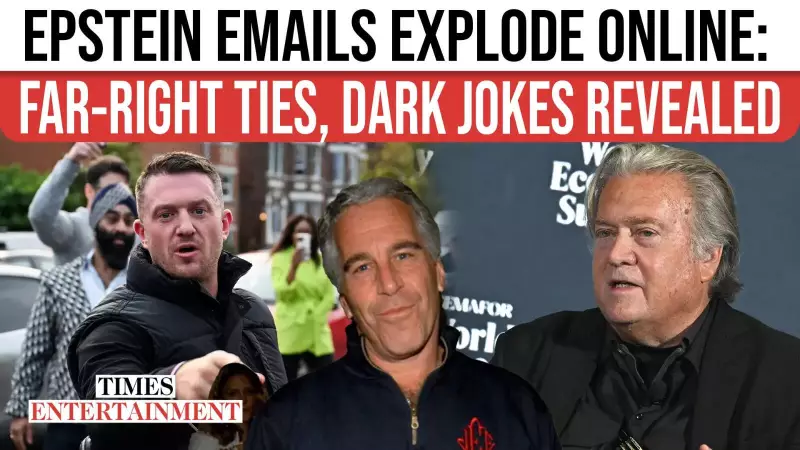
A fresh batch of leaked emails from the Jeffrey Epstein case has triggered widespread outrage after revealing disturbing Holocaust references and connections to far-right activist Tommy Robinson. The explosive material, which surfaced online on November 17, 2025, has intensified scrutiny on extremist networks and their internal communications.
Shocking Content Sparks Global Debate
The leaked correspondence contains what appear to be grotesque jokes about the Holocaust alongside partisan political commentary. These revelations have ignited fierce online discussions about the nature of discourse within certain ideological circles. The emails referencing Tommy Robinson, the controversial British far-right figure, have particularly raised eyebrows among investigators and the public alike.
Digital forensic experts are currently working to verify the authenticity of these communications, but their circulation has already prompted serious questions about ethical boundaries in private conversations. The timing of this leak comes amid ongoing investigations into the broader Epstein network and its connections to various public figures.
Broader Implications for Public Discourse
This development has reignited debates about how private rhetoric, when made public, affects political landscapes and social harmony. The inclusion of Holocaust remarks in the emails has drawn condemnation from Jewish organizations and human rights groups worldwide, who describe the content as deeply offensive and harmful.
The emergence of these emails has also sparked conversations about digital conduct and the permanence of electronic communications. Many are questioning whether private exchanges among ideological allies should be subject to public scrutiny, while others argue that extreme rhetoric demands exposure.
Ongoing Investigations and Political Fallout
Authorities and independent researchers continue to examine the origins of these leaked emails and their potential connections to wider political operations. The reference to Tommy Robinson has drawn attention to the international networks that connect various far-right movements and their potential funding sources.
The November 17th leak has already influenced political discourse in multiple countries, with several public figures being forced to address their potential connections to the content. As investigations proceed, more revelations are expected to emerge about the scope and nature of these communications.
This situation underscores the continuing relevance of the Epstein case years after his death, demonstrating how digital evidence continues to shape our understanding of powerful networks and their operations. The public remains watchful as more details are likely to surface in the coming weeks.





